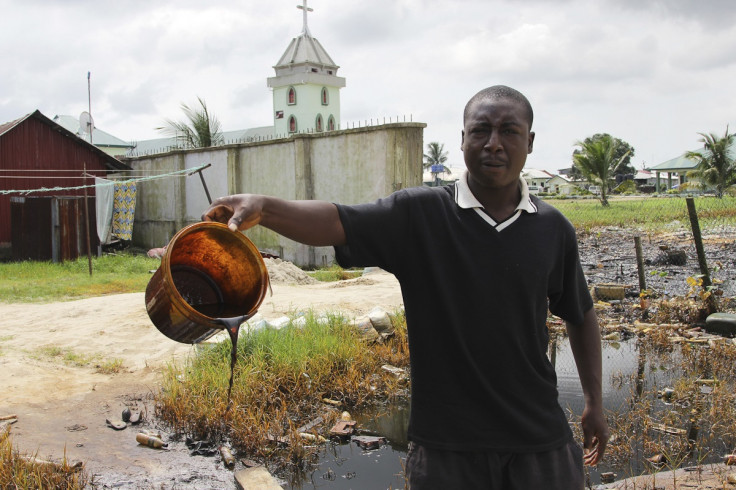Two Nigerian communities sue Shell for oil spills in Niger Delta

Two Nigerian communities are suing Shell in London over multiple oil spills in the Niger Delta. It will be the second suit in five years as the mainly-fishing and farming communities of Bille and Ogale want compensation for damage to their region and for the oil giant to clean up their land.
Shell's Nigerian business, known as Shell Petroleum Development Company of Nigeria (SPDC) will attend the first court hearing on Wednesday 2 March at the Technology and Construction Court. The court will decide if the claimants can lodge a case against Shell, which believes the case should be heard in Nigeria.
The 40,000-strong Ogale community in Rivers State, believe that successive spills since 1989 have meant they do not have clean drinking water, farmland or rivers. The Bille community claims SPDC should be liable for "failing to protect their pipelines from damage caused by third parties", according to Leigh Day – which is representing the two communities.
Daniel Leader, a partner at Leigh Day told the BBC: "It is scandalous that four years after the UNEP Report, Shell is yet to clean up its oil in either Ogale or Bille. Our client's patience has now run out and we intend to force Shell to act since it is clear they have no intention of doing so on their own."
Their dual claim highlights a November 2015 report by human rights group Amnesty International, which states four spill sites are still contaminated despite the Anglo-Dutch company affirming they would clean them.
A 2011 report by the United Nations Environment Programme (UNEP) found water in the area tainted with oil by-products, including benzene. They proposed an extensive clean-up but conceded it could take 30 years to fully rehabilitate the surrounding region, Ogoniland, where villagers have been in conflict with the oil major producers for decades.
But the company, based at The Hague, says it has agreed a clean-up plan. They said in a statement: "In mid-2015 SPDC JV, along with the government, UNEP and representatives of the Ogoni community, agreed to an 18-month roadmap to fast-track the environmental clean-up and remediation of Ogoniland which includes a governance framework."
The surrounding region is plagued by oil thieves who steal unrefined crude oil and try to refine it locally. The company, founded in 1907, said this has led to more spills and damage.
The statement continued: "Both Bille and Ogale are areas heavily impacted by crude oil theft, pipeline sabotage and illegal refining which remain the main sources of pollution across the Niger Delta.
"Ogale is in Ogoniland and it is important to note that SPDC has produced no oil or gas in Ogoniland since 1993. Access to the area has been limited following a rise in violence, threats to staff and attacks on facilities."
In January Shell agreed to pay one Nigerian fishing community, based nearby, £55m ($76m) as compensation for its role in the worst oil spill in Nigeria's history. SPDC made the payout to 15,600 fishermen in the southern town of Bodo, with each individual receiving around £2,200, which is equivalent to three years' income on the Nigerian minimum wage.
© Copyright IBTimes 2025. All rights reserved.






















